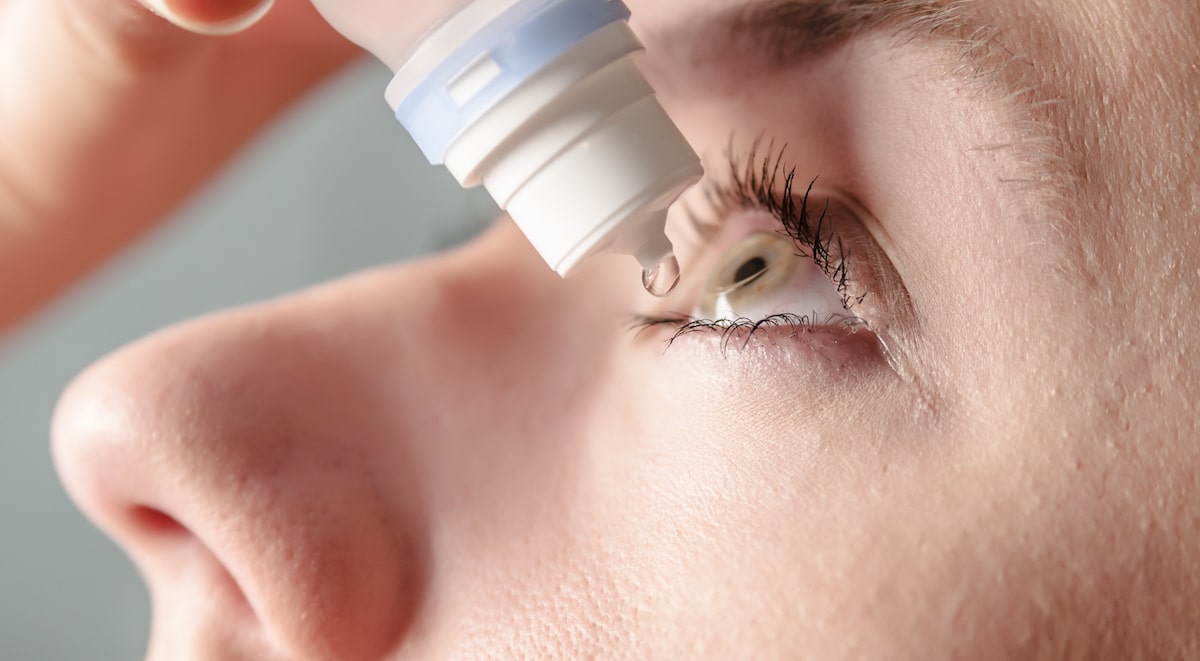Help for Dry Eyes
Some things are best dry, like socks, firewood, and the humor of Bob Newhart. Your eyes are not one of these things.
If you regularly suffer from dry, scratchy, uncomfortable eyes, there may be an underlying problem that requires some professional assistance. The doctors at Sight Eye Clinic can help you get to the bottom of things and offer solutions that can provide a much more comfortable and clearer outlook.
In the meantime, it can help to learn more about what the causes of dry eyes can be, as well as some steps you can take at home to potentially decrease those dry spells.
What Causes Dry Eyes?
Dry eyes happen due to a lack of proper tears over the eyes. We likely did not have to tell you this, but there are a few different circumstances that can comprise this condition.
For some patients suffering from dry eyes, tear production itself has decreased in a significant way. A variety of different causes may account for this, including:
- The course of aging, typically past the age of 50.
- An effect of other conditions such as diabetes, lupus, rheumatoid arthritis, and others.
- The effect of a nutritional deficiency, particularly a lack of vitamin A.
- A side effect of certain medications.
- Damage to tear-producing glands due to inflammation or radiation.

For other patients, something in the environment or behavior is making tears evaporate more quickly. This may be caused by windy, smoky, or overly dry environmental conditions. It may also be caused by blinking less often (which often involuntarily happens during some high-focus activities) or problems with the eyelid itself.
Still, in other patients the makeup of the tears has changed in a way that they no longer contain the right mixture of substances to best benefit the eyes.
Yes, your tears are not just water and a little salt. They also contain certain amounts of mucus and fatty oils. This might sound gross, but it serves the important purpose of keeping the surface of the eyes smooth, clear, and shielded from infection.
When the “recipe” for tears gets shifted for one reason or another, however, it can lead to dryness and other problems. This might be caused by the clogging of a gland.
Turn Around Dry Eyes
There are multiple factors that may be at play when it comes to your dry eyes, and a permanent solution may very well not come until the source of the problem is properly identified. If you have suffered from dry eyes for a while now, you should ideally come in for an examination.
If you have just started having dry eyes, we still recommend giving us a call. There is a chance, however, that the situation may be temporary and some at-home methods may provide significant help. Certain simple treatments can attack the problem from various angles.
- Use Artificial Tears. Let’s get the most commonly thought of solution out of the way. Using eye drops will help keep your eyes nicely lubricated. They can be a decent temporary measure, but likely not something you want to do for the rest of your life, if possible.
- Applying a Warm Compress. In cases where the glands around your eyes may be clogged, a warm compress can help loosen them. Soak a clean washcloth in warm water, wring it out, and place over each affected closed eye for a minute or longer. Using your fingers, very gently press around the edge of each eyelid to help force out clogged oils. This method can also help reduce irritation and inflammation, and you can continue wetting the cloth to keep it warm.
- Increase Omega-3 Intake. Omega-e fatty acids, research suggests, can aid in the function of the oil-making glands in your eyes. They also have a number of other benefits for your general health. Good sources of omega-3’s include salmon, fatty tuna, walnuts, and flaxseed. Pill and tablet forms can also be acceptable.
- Don’t Forget to Blink. Yes, we’re being serious. When you are engaged in something requiring high focus, such as staring at your computer at work, you may subconsciously reduce the number of times you blink. There are a couple ways to go about helping yourself in these situations. First is adhering to a rule of closing your eyes for 20 seconds every 20 minutes. Another is setting your computer screen beneath the level of your eye. This reduces how wide you must open your eyes to concentrate, and can help slow down some evaporation.
- Protect Your Eyes Outside. If there is reason to believe extended time in dryness and wind outside may be contributing to your dry eyes, wraparound eyewear may be able to help prevent moisture loss. Some forms of eyewear are not only shielded more on the sides, but also have eyecups made of silicone or foam for added protection.
- Add Some Moisture to Your Environment. Don’t neglect the use of a humidifier in your home, especially during more arid months of the year.
Don’t Wait on Getting the Help You Need
If you find relief by using the above remedies, that’s great! But if your dry eyes persist, don’t hold out and wait for things to turn around on their own. They likely won’t, and we have professional treatments and medications that can provide the help you might need that you can’t find at home.
We have helped patients throughout West Michigan find clarity, comfort, and better eyesight, and we can help you too! Call our Zeeland office at (616) 772-2020 or fill out our online contact form to reach out to us.
